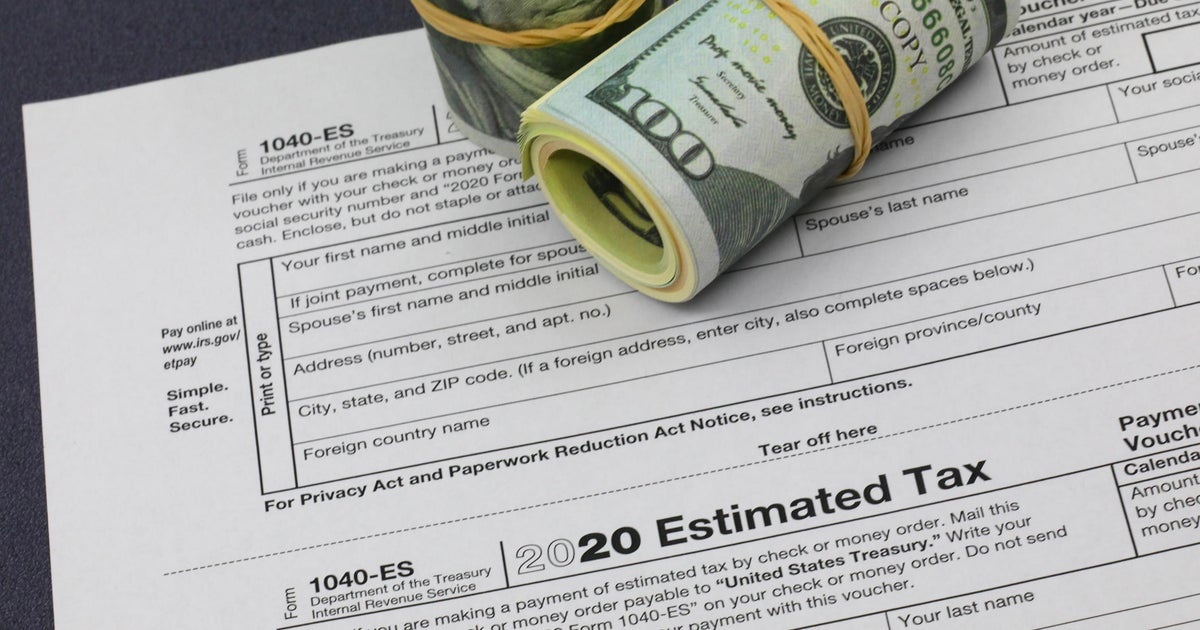Billionaires pay a lower tax rate than the rest of America's taxpayers, new study finds

The rich are different from other people — and that also applies to the share of their income they pay in taxes, according to a new study from University of California, Berkeley, economists.
The individuals who make up the Forbes 400 list, topped by Tesla CEO Elon Musk with a fortune of $244 billion, paid an average effective tax rate of 24% from 2018 to 2020, compared with a 30% rate for all other U.S. taxpayers, the researchers said in a new paper published in the National Bureau of Economic Research.
The research comes as President Trump's "big, beautiful bill," signed into law on July 4, delivers its largest benefits to the highest-earning Americans through a mix of new and extended tax breaks. Those include raising the estate-tax exemption to $15 million per person, up from about $14 million.
The changes build on an earlier tax cut — the Tax Cuts and Jobs Act, Mr. Trump's signature first-term legislation. That 2017 law reduced the effective tax rate for the richest Americans from 30% to 24%, the researchers found.
The new findings — from Berkeley economists and noted inequality experts Emmanuel Saez and Gabriel Zucman — calculates the tax rate by tallying all income taxes, as well as corporate taxes that are paid by the companies owned by the richest Americans. In other words, it assigns a share of Amazon's corporate taxes to that of Amazon founder Jeff Bezos when calculating his total tax burden.
"The economic income of the wealthiest are essentially the profits of the businesses they own," Saez told CBS MoneyWatch in an email. "Jeff Bezos owns about 10% of Amazon, and hence his true economic income is 10% of Amazon's profits."
Corporate taxes are levies on the profits generated for Bezos, similar to how an employer withholds federal income and Social Security contributions from a worker's paycheck, he added.
Saez and Zucman are leading proponents of instituting a U.S. wealth tax to help address widening inequality between the haves and have-nots. That idea has been embraced by some lawmakers, such as Senators Elizabeth Warren, a Democrat from Massachusetts, and Bernie Sanders, an independent from Vermont.
Some conservative critics have argued that wealth taxes could be self-defeating, with the Hoover Institute noting in a 2023 blog post that the levy could discourage entrepreneurship and investment.
Research shows that the Tax Cuts and Jobs Act, while cutting taxes for many individuals and businesses, hasn't had a significant impact on the economy, the Congressional Research Service found in an April report. Republican proponents of the "big, beautiful bill," such as House Speaker Mike Johnson, also say that it will boost the economy and provide tax relief to workers and families.
How billionaires pay a smaller shareU.S. income taxes are designed to be progressive, meaning that higher-earning workers pay a bigger share of their income to the IRS than people lower down the ladder. But because capital gains — the profits earned from selling stocks, bonds, real estate and other assets —and business income are taxed at a lower rate than the top rate for income that people earn through their jobs, the richest Americans reap a massive tax break.
For instance, the highest tax rate on earned income stands at 37%, which is assessed on every dollar earned above $609,351 for individual taxpayers. Yet that same person will pay only a 20% tax rate on long-term capital gains, such as profits from a stock sale, and a 21% corporate tax rate on income earned through a partnership or other business.
And if the rich don't sell their shares, they don't have to pay any taxes on that wealth because they haven't realized a capital gain, Saez noted.
"The individual income tax is designed to be progressive thanks to its increasing tax rates by brackets, and it does a pretty good job except among the billionaire class," he said. "As I said, the billionaire class can avoid realizing individual income and hence can escape the individual income tax."
To be sure, the rich are shouldering the largest share of the nation's taxes, IRS data also shows. The top 1% of earners – people who make over roughly $663,000 per year — account for roughly 40% of all federal individual income tax, while the top 50% contribute 97%, a Tax Foundation analysis of IRS data shows. The bottom half of income earners account for about 3% of those taxes.
Some wealthy Americans pay a tax rate exceeding the 30% average, the new paper also found. The top labor earners — people who depend on high wages for their incomes rather than capital gains or corporate profits — have a 45% effective tax rate, according to Berkeley analysis.
The findings about the richest 400 Americans suggest that a wealth tax is still needed to curb inequality in the U.S., Saez said.
"The wealth tax is the most direct and powerful way to specifically target the ultra-rich and increase tax progressivity at the very top," he said. "The wealth tax on the ultra-rich is also popular but will obviously be fought by billionaires, and they have disproportionate influence."
More from CBS News
Aimee Picchi